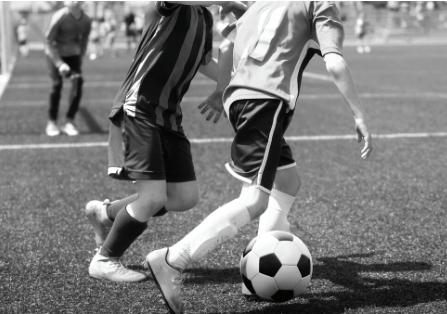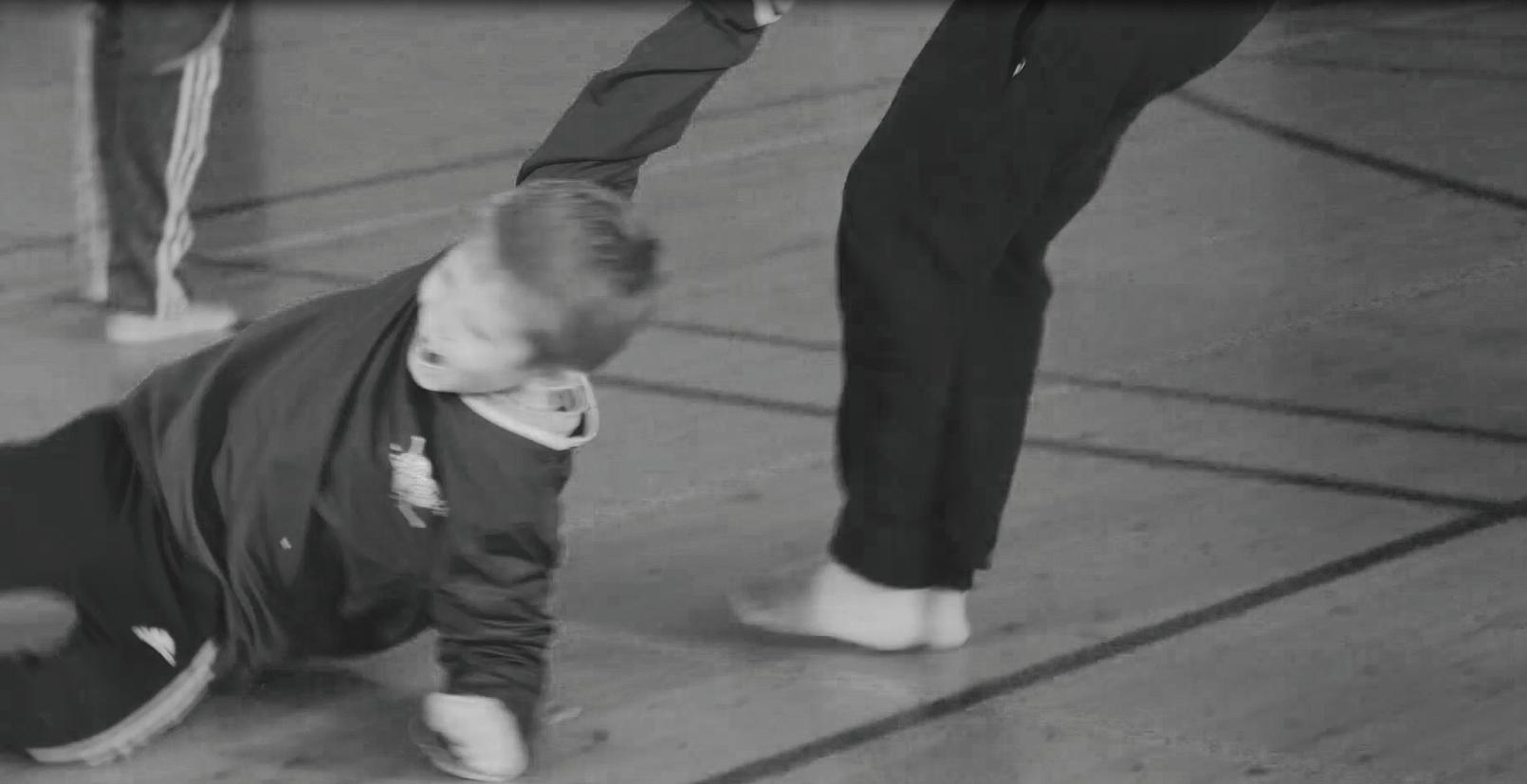
8 minute read
Case 4: Icehearts
Eeva Toivanen, The Finnish Association of Social Enterprises, ARVO
Icehearts
Advertisement
SOCIAL ENTERPRISE CASE STUDY
Organisational background
Icehearts is a non-profit social enterprise working to prevent youth social exclusion in Finland. Icehearts is an additional support system to municipalities’ social services that accompanies the child for up to 12 years. The idea of Icehearts is to provide a safe adult, the Icehearts educator, and the support of a team to children and youth who are at greatest risk of dropping out of school and later social exclusion. It is estimated that one Icehearts team of 25 children can save up to €2.8m of public money.
Societal need
The number of children (under 18 years old) taken into custody in Finland has risen by 3% annually in 2000–2014. Children in the identified risk groups do not receive the help and support needed to prevent more intensive social services in time. The services are often scattered and fragmentary and no-one has the overall responsibility for the child’s situation. This increases the risk of ending up in foster care and social exclusion, even though with the right support a different path would be possible.
Vision
Icehearts wants all children to have equal opportunities to grow up to become well-adjusted adults. Their vision is that children and youth grow up to be active community members who are also able to generate well-being amongst others.
A seven-year old boy refuses to go to school. The first half of his first grade has been full of fist fights, bullying, low grades and notes from the teacher saying the boy can’t focus during classes and is disturbing others. The boy’s mother is a single parent and doesn’t know what to do. She has tried everything but can’t get the boy out of his bed in the mornings anymore. The mother works long hours and can’t be there to watch over her child all the time. Her younger son needs her attention too. Social workers are observing the situation and are considering taking the boy into custody if he keeps not showing up at school.
The boy is referred to an Icehearts team.
Goals
The primary goal of the Icehearts programme is that In addition to the programme goals there are at the end of their Icehearts path, the young individual goals for each Icehearts participant. These participants have passed elementary school and sub-goals have been identified to support the continue to secondary education. Studies show that achieving of the primary goals listed above. Each of passing elementary school with accepted grades them has to be measured and monitored as a part of significantly decreases the risk of social exclusion.1 the overall impact measurement. Another goal is that a confidential relationship develops between the child and the Icehearts educator and that Icehearts activities and the support School attendance from the educator secure and support the growing of the child. Improving of social skills
Fluent running of the family’s everyday life
‘One of the strongest experiences for me was that the educator didn’t just listen, he heard me. He never judged me right away, but always gave me the chance to tell my side of the story. He understood and supported me even if I had done something stupid. The educator managed to see things from my perspective.’ Decrease in the need of social services
Functional connection between parents and the educator
Decrease in the need of unplanned social services
Participation in the Icehearts-activities
Former Icehearts participant, now 22 years old2
Terveyden ja hyvinvoinnin laitos. Syrjäytyminen ja syrjäytymisen riskitekijät. Available at: https://bit.ly/311F1nh. Accessed on 17-08-2020 Icehearts blog. Available at: https://www.icehearts.fi/otteita-iceheartsin-arjesta-3-4-lasten-nakokulma/. Accessed on 17-08-2020
Resources Actions
One Icehearts team costs about €50,000 per year. Icehearts is a child welfare services preventive Funding channels are diverse: some teams get programme that lasts for up to 12 years. An Icehearts funding from private foundations and philanthropists, team of about 25 children is put together in many from municipalities and a few from a Social multi-professional cooperation with pre-school, Impact Bond (SIB – see more about SIBs on pages school and social service professionals when the 30-31). Municipality partnerships are the ones that children are six years of age. The selected children are Icehearts seeks to form first. The problem with these identified to be at risk of intensive social services and is that municipal budgets usually cover 1–2 years, marginalisation and often come from areas where while the Icehearts intervention lasts 12 years. social problems accumulate. The child’s caregivers Municipal budgets are also quite bureaucratic and ultimately decide if the child will participate in the team fragmented: each sector (education, social services, activities and accept the offered support. sports) has its own budgets and procedures and Icehearts has to negotiate with them all. When a The teams are led by committed, trained, professional partnership with a municipality is not an option or fails, educators who support the team’s children for 12 Icehearts raises the team funding from foundations years, from first days of school to the edge of and other private sources. adulthood. The team’s educator is an unofficial “case manager” for the child and is there to help with school, A key resource in the Icehearts model are social services, career choices and everyday life. The professional and committed educators. The educator takes part in meetings concerning the Icehearts model requires exceptionally long and well-being of the child when necessary. The educator intense commitment from the employees. They have works closely with social, health and educational to be available for the children and their families services. The central goal of the educator is to outside office hours and for up to 12 years. The support the child and their family to lead a good educator’s job is full-time and all educators are everyday life and build hope for the future. The professionally qualified to work with children and educator is the person on whom the child and their youth (having a degree in a relevant study area, for family can always call. example social work). Educators receive mentoring and support from Icehearts’ central organisation but in their everyday work their closest colleagues are teachers and other school professionals. Not everyone can be an Icehearts educator, so finding the ‘For us the educator is like a family member. Such an right people is a key to the success of the model. important source of support. I am a single parent with two sons, the younger one with ADHD and Asperger’s diagnoses. The Icehearts educator has given me not only mental but also very concrete support. He has sat beside me in countless school meetings and encouraged me when I needed it the most.’ Icehearts blog. Available at: https://www.icehearts.fi/otteita-iceheartsin-arjesta-2-4-vanhempien-nakokulma/. Accessed on 17-08-2020 Mother of an Icehearts child3

Icehearts uses team sports as a part of the support system offered to the participating children and youth
‘Now that I’m older, I have come to realise how important it was that I got a hobby. Sports carried me and gave me the opportunity to have support and safety from my teammates. Also the trips to amusement parks and abroad were a significant thing to a child from a single-parent family. We couldn’t have afforded them without Icehearts. These things gave me the feeling that the world belonged also to me.’
Former Icehearts child, now 22 years old4
Outcomes
Icehearts has been developing systemic measuring systems to follow the outcomes of the programme annually during the 12-year period. Every goal listed in the “goals” section above is being measured. Measuring tools are for example: questionnaires conducted with the children, their parents, teachers and social workers, descriptions of meetings by the educator, data from school (attendance, behaviour, success in school etc.) According to the impact evaluation done in 2016 the Icehearts programme has increased the self-esteem and empathy skills of the children. They also reported to have more friends and doing better in school.
Icehearts blog. Available at: https://www.icehearts.fi/otteita-iceheartsin-arjesta-3-4-lasten-nakokulma/. Accessed on 17-08-2020
The boy we started with has now finished 9th grade (last grade of elementary school in Finland) and will start studying to become an electrician. After he started in the Icehearts team he slowly started opening up. It took time for the educator to gain the boy’s trust, but when it happened the educator was able to help the boy to do better in school and end fighting with other children. Together they found out that the boy was really good with technology and learned best by experimenting in practice. One of the former fist fight opponents became the boy’s best friend and together they formed a power duo in the Icehearts football team.
The threat of foster care is no longer present. The mother has reconnected with her child and is able to handle him better.
In addition to the educator’s individual support for each child and their family Icehearts provides meaningful activities for the children in the form of team sports. The team is a place to form friendships, support the development of social skills and offer a sense of belonging. Doing sports regularly also enhances physical well-being.
Icehearts was founded in 1996. In 2020 there are 46 teams in 13 municipalities in Finland. Each team is led by an Icehearts educator who works in his/her position full-time (40 hours per week is the length of full work-week in Finland).
Societal impact
It has been calculated that one Icehearts team saves up to €857,000 of public money in the cost of social services. The savings become visible after 10 years (from starting in the Icehearts team) when the youth successfully move to secondary education. Studies show that the Icehearts intervention halves the number of NEET (not in employment, education or training) youth. When considering this, the savings for society can be up to €2.8m in total per team.
As important an impact as the savings is that the children grow up to be well-adjusted adults able to generate well-being amongst others.
The Measures of Good – research project identified key impact factors of Icehearts that are crucial in generating the positive impact:
Long-lasting confidential relationship with a safe adult
The sense of belonging arising from the team
Diverse individual and team activities that take place near the child and their normal living environment
The Icehearts model requires the employees to commit to the job for an exceptionally long time. They also have to be available for the children outside normal office hours.
Bonus
Watch a short film about the impact of the Icehearts model (English subtitles available on YouTube): https://www.youtube.com/watch?v=r6HWIOFqNhU










